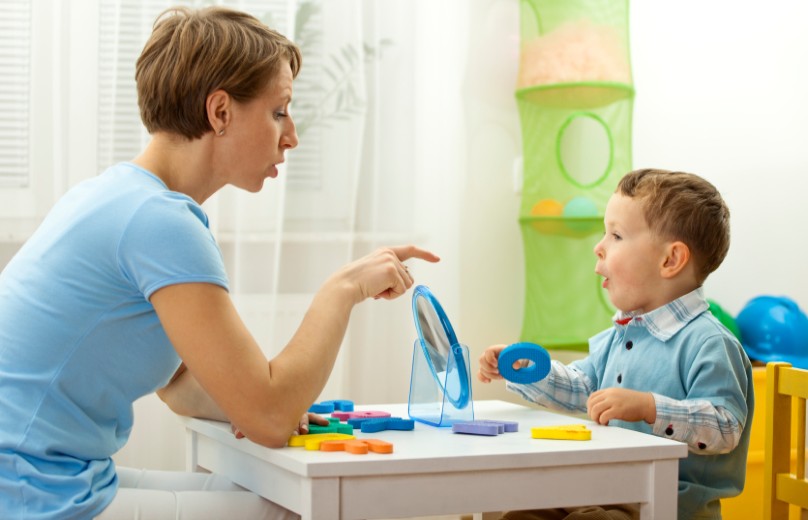Parents have a pretty important job. Not only do they have to provide food, shelter, love, and warmth for their child, but they also have to make sure they have all the tools they need to develop and enjoy the best start to life.
Sometimes, life throws a curveball, and some children require more of a helping hand than a parent can provide, especially when it comes to language and speech. Speech therapy can often be the answer, but how do you know if your child is on the right track or might require speech therapy? Read on to find out.
Does My Child Need to See a Speech Therapist?
There’s a common misconception that an expert in kids’ speech therapy focuses purely on speech. If your child seems to be speaking okay, then do they really need to see a speech therapist?
A speech therapist focuses on more than just speech. They can also help children with a wide range of language and speech development problems, such as the social aspect of language, known as pragmatics, and even eating. Sometimes, a weak lip or jaw can result in speech complications, so a speech therapist can also help with oral motor skills, as well.
Parents and teachers can often tell when something isn’t quite right, or if a child isn’t reaching their developmental milestones. As soon as you suspect that your child may have a language or communication problem, seek help. Talk to your GP or child’s teacher to find out what the most appropriate next step can be.
What to Look For
Before and after your child begins talking, there are ways to know if they are on the right track or might require kids’ speech therapy in the future. Communication from a young age, even before speech, is something worth watching in your child. Do they take turns in play? Do they imitate? Can they make requests during play? These can all form the foundation of communication early on.
As children begin to talk, parents can notice age-appropriate language and alarm bells that a speech therapy assessment might be necessary. For example, a three-year-old that says Wodger Wabbit instead of Rodger Rabbit, is likely on track, for the R sound is still developing.
However, a child that misses out word sounds and jumps to the end of the word, such as ‘uck instead of truck, may require a helping hand.
Parents, caregivers, and education providers can also look out for other common signs of speech delay, such as:
- Making no response to noises
- Not babbling or making sounds as a baby
- No first word by 15 months
- Non-social and lacking eye contact
- A vocabulary of fewer than 50 words by age two
- Stuttering or lisping
- Challenges with instruction following by age two
- Speech sound errors after age five
As a parent or caregiver, it’s essential to look out for any speech, developmental, or communication problems in children. If you suspect that your child is not hitting their milestones, then seek help without delay. Early intervention is key to ensuring they have the best tools at their disposal before they head off to school.







